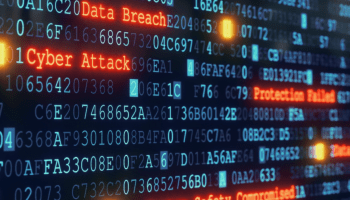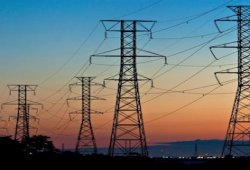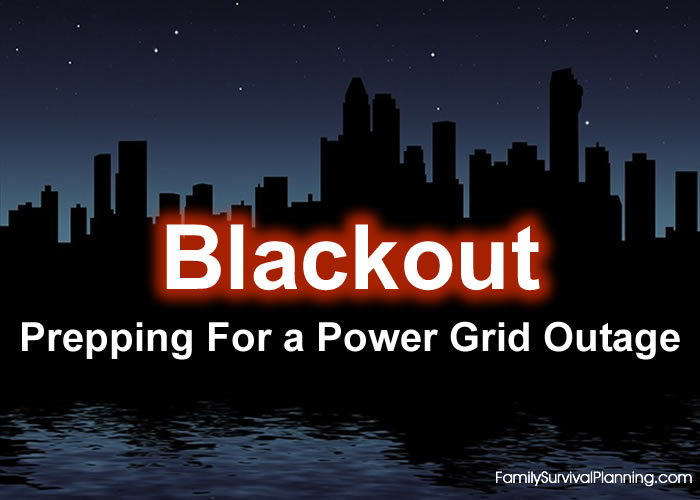- HOME
- Preparing for Disasters
- Power Grid Outage
Will You Survive the Next
Power Grid Outage?
Could you survive 10 days without electricity? A month? Six months?
There are many important events and discussions taking place in the news currently but what's not being discussed everywhere, and should be, is the fragility of America's power grid.
It should be a red flag to all of us because a catastrophe of the power grid going down and the ensuing blackout means millions of people will die! I'm not talking about a power failure of a few days or a week; I mean any length of time more than that.
Every convenience and survival that we now take for granted will be gone - really gone!
Invest in emergency food storage now and enjoy peace of mind for the next 25 years. Don't miss out on the savings!
The biggest red flag on this issue in years waved in South America when tens of millions of people in Argentina, Paraguay, and Uruguay found themselves in a complete blackout. In one moment, they had electricity; the next moment, they had none, and they were catapulted back to the 1800s.
Without electricity:
In the blink of an eye, you will lose access to money, food, gasoline, communication, medicine, medical attention, heat, air conditioning, and security.
Whether the power is out because of a cyber attack, an EMP, or a huge weather event, your way of living will be completely and permanently altered.
It will most certainly be totally about survival!
What Are Our Vulnerabilities?
Grid Failure Due to Weather

A lightning storm, an earthquake, tornado, hurricane or other natural disaster can put the whole neighborhood or an entire city or country in the dark.
Our power grid is made up of just three systems. A significant weather event could cause the "web" of our grid to fail, taking out the electricity of 1/3 of the country. This actually happened in 2003 when 50 million people were left with cascading blackouts because a tree branch fell on a power line in Ohio.
Our government knows that the power grid is dangerously fragile with few transformers (made in China) for replacements.
Because the infrastructure is so antiquated, weather triggers multiple blackouts per year in the U.S. Blackouts which collectively cost the nation upwards of $30 billion in spoiled inventory, lost wages, and repair of the grid.
The national power grid of the United States is truly a mess held together with, as the joke goes, by not much more than "baling wire and chewing gum."
Cyber-Espionage Attacks

Cyber attacks are happening ALL. THE. TIME. Nearly all nations are involved in cyber hacking: China, Russia, UK, Israel, Iran, North Korea, the U.S. and others. We knew Iran was likely to retaliate after the U.S. launched a cyber attack on their rocket and missile launching systems last week {June 2019).
Cyber pros nearly unanimously predicted Iran would respond to the cyberattack with hacks of its own. But they were split on whether the Trump administration made the right call by launching a cyber attack.
On the plus side, a cyber attack that doesn’t kill anyone is clearly a better outcome than a military strike with many casualties, Chris Painter, former State Department cyber coordinator during the Obama administration, told me.
“It sends a strong message that’s not accompanied by people dying, which is a good thing,” he said.
Sure, a cyber attack does not directly kill humans, as the article stated. But if one of our enemies instigated a cyber strike on our power grid, or if we did the same to theirs, you know millions would die within a week. Power grids are not easily fixed - if at all!
Solar Flares (CMEs)

CMEs or solar flares are not uncommon and usually occur during years of high sun-spot activity. Mostly they just glance off the earth or don't come too close nor affect us much. But we don't really know when or if they will be strong enough to cause disruptions in our communications.
It happened in 1859 and took 18 hours to reach earth (it usually takes 3 or 4 days). Back then we had no electrical grid. Then it happened again in 1989. The entire province of Quebec, Ontario went dark in an elapsed time of 90 seconds. The storm lasted for about 26 hours and the blackout came very close to extending into the United States.
Our electrical power grid is very complex, intricately connected, and fragile. A large CME could literally melt the transformer hubs and the damage could take 4 to 10 years to fix because these units are huge, complex to make, difficult to transport—and made in China.
What happens when the grid goes down?

There is a difference between a power outage and a grid down situation.
A power outage is usually for a short time — several hours or maybe a day. It's usually local — a neighborhood, part of a city, or maybe even a whole city.
If the grid goes down, it may affect the entire country. Preparing for a long-term grid down scenario is the most difficult challenge we can undertake. It could, if it was an EMP, take us back to almost the stone age, or at least back to the time before electricity.
Not sure you'll like freeze-dried foods? Sample 5 varieties from Valley Food Storage for only $19.99.
Four Critical Preparations for a Power Outage
1. Having Enough Food and Keeping It Safe to Eat
If the power is out for less than two hours, the food in your refrigerator and freezer will be safe to consume.
If the power is out for longer than two hours, follow these guidelines:
- For the Freezer section: A freezer that is half full will hold food safely for up to 24 hours. A full freezer will hold food safely for 48 hours. Do not open the freezer door if you can avoid it.
- For the Refrigerated section: Pack milk, other dairy products, meat, fish, eggs, gravy, and spoilable leftovers into a cooler surrounded by ice. Inexpensive Styrofoam coolers are fine for this purpose.
- Use a food thermometer to check the temperature of your food right before you cook or eat it. Throw away any food that has a temperature of more than 40 degrees Fahrenheit.
Freezer foods may be refrozen if ice crystals are present. Exceptions include ice cream, pizza, and casseroles. If the frozen food has completely thawed but is cold, it must be cooked within a 24-hour period; or foods may be refrozen within 24 hours after thawing. However, quality may be diminished. If in doubt about when the food actually thawed in the freezer, discard the thawed food.
Dry ice may be used to keep frozen foods frozen and cold foods cold - if it's available at all.
It's always a good idea to have some canned or freeze dried food on hand during a power outage, in case you have spoiled food or to keep from opening the refrigerator or freezer too often.
2. Emergency Heating — Staying Warm

It's only logical to consider emergency heating in your survival plan as many disasters involve weather that may knock out your electricity and that means, your furnace.
It could be a real challenge to stay warm when the furnace hasn't worked for days due to winter storms, hurricanes, tornadoes, floods, earthquakes, etc.
In planning for emergencies for your family, remember to put some of the items . . .
3. Emergency Lights

Have you ever spent a night in your city when ALL the lights were out? It's kind of eerie, isn't it?
One night in the dark can be kind of fun - an adventure, but several nights, or longer, can be very difficult unless you are prepared.
There are many types of lighting that can be used when the power is out.
4. Cooking Without Electricity

How have you prepared for survival cooking so that your family will have a hot meal if there is no electricity?
During World War II, the army discovered that men fighting in the bitter cold would do well if they had one hot meal a day. Without it, they would die from living out in the cold.
There are many ways you can provide your family with hot meals . . .
What do you think?
I’d love to hear what you have to say in the comments.
















